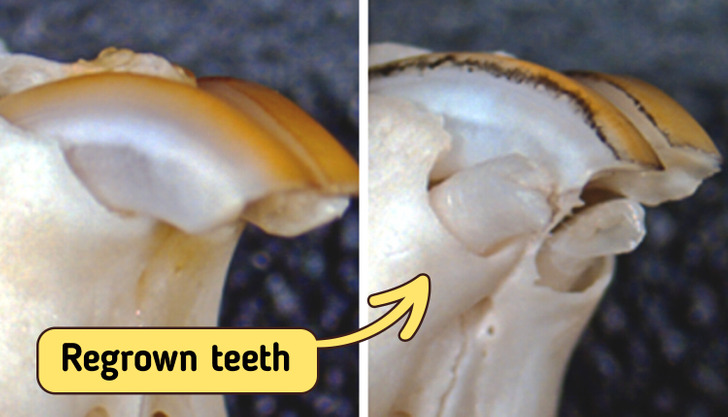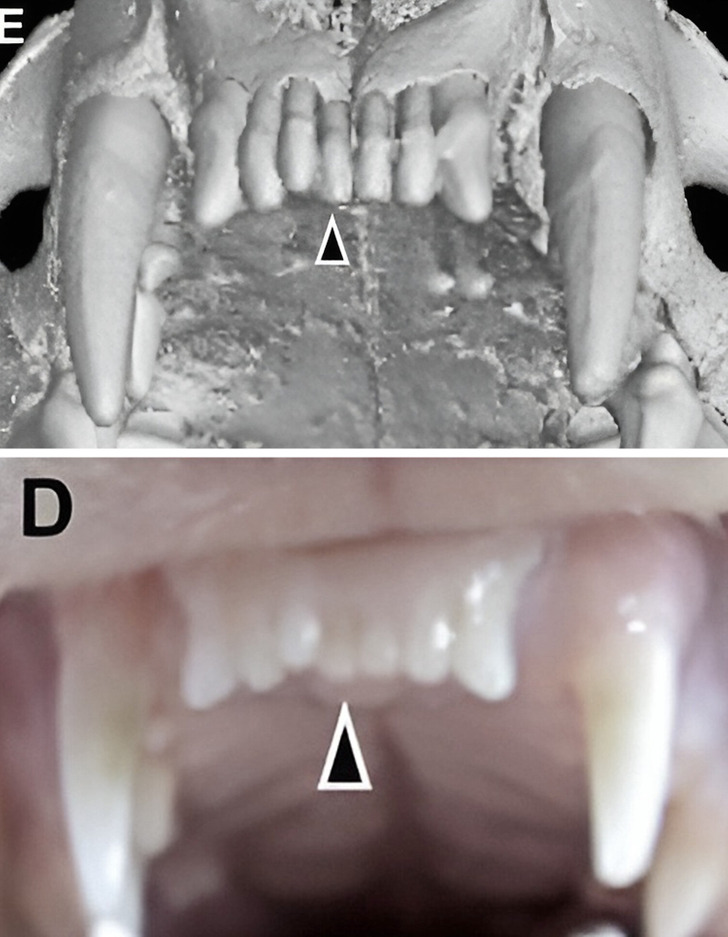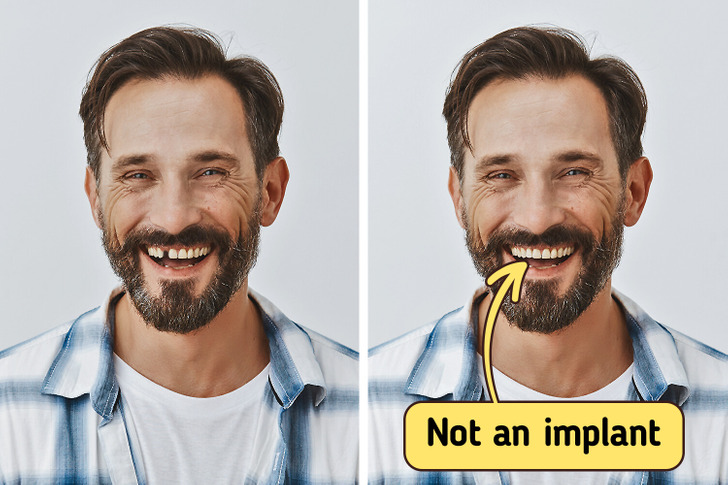The tooth fairy is a welcome guest for any child who has lost a tooth. Not only will the fairy leave a small gift under the child’s pillow, but they be assured of a replacement tooth in a few months. Unfortunately, the scenario is quite different for adults grappling with a loss of teeth. Luckily, there may be some hope thanks to a new study performed by scientists at Kyoto University and the University of Fukui.
A dental breakthrough
While the typical adult mouth houses 32 teeth, approximately 1% of the population exhibits variations of them, either possessing more or fewer teeth due to congenital conditions. Researchers have delved into the genetic factors behind cases of excessive teeth, seeking valuable insights into the potential regeneration of teeth in adults. This study is the first to show that monoclonal antibodies can help regrow teeth. It suggests a new way to treat a dental problem that currently requires implants and other artificial solutions.
A bit of science
The research team disclosed that an antibody targeting a specific gene, known as uterine sensitization-associated gene-1 (USAG-1), can induce tooth development in mice affected by tooth agenesis, a congenital condition. The findings were published in the journal, Science Advances.
As per Katsu Takahashi, a senior lecturer at the Kyoto University Graduate School of Medicine and one of the principal contributors to the study, the essential molecules crucial for the development of teeth have already been pinpointed. “The morphogenesis of individual teeth depends on the interactions of several molecules including BMP, or bone morphogenetic protein, and Wnt signaling,” says Takahashi.

On April 13, 2021, the University of Kyoto posted its first pic of newly-grown teeth in mice.
BMP and Wnt are involved in more than just tooth development; they affect the growth of organs and tissues early in the body’s development. Because drugs affecting them directly might have broad side effects, scientists are cautious. To find a potentially safer method, researchers focused on the gene USAG-1, thinking that aiming at factors countering BMP and Wnt specifically in tooth development could be more precise.
“We knew that suppressing USAG-1 benefits tooth growth. What we did not know was whether it would be enough,” added Takahashi.
The first results
Scientists looked at how different monoclonal antibodies affect USAG-1. Monoclonal antibodies are often used to treat things like cancer and arthritis and for making vaccines. Tests with this antibody showed that BMP signaling is crucial for deciding the number of teeth in mice. Also, just one treatment was enough to grow a whole tooth. Further tests confirmed these positive results in ferrets too.
“Ferrets are diphyodont animals with similar dental patterns to humans. Our next plan is to test the antibodies on other animals, such as pigs and dogs,” explained Takahashi.

Fully regrown frontal teeth in ferrets
The next steps

Now, scientists are going to test the drug on healthy adults. If that goes well, the team plans to try it on kids aged 2 to 6 with a rare tooth problem called anodontia, a genetic disorder defined as the absence of all teeth. These kids will get one shot of the drug to see if it makes their teeth grow. If everything works out, the medicine might be approved by 2030.
Takahashi sees the new medicine as an additional choice for individuals who are missing some or all of their teeth.
“The idea of growing new teeth is every dentist’s dream,” Takahashi told the Japanese newspaper, The Mainichi in June this year. “I’ve been working on this since I was a graduate student. I was confident I’d be able to make it happen.”
So hopefully, by the year 2030, humans will get a chance to have their third generation of teeth grown and say goodbye to implants. Until then, make sure to keep your teeth strong and healthy — this article will help you with that.
Preview photo credit KyotoU_News / Twitter
You Won’t Believe What Happened When This Woman with Facial Tattoos Went to TJ Maxx!

Sometimes, when you apply for a job and don’t get it, you might wonder why. Was it your skills, how you presented yourself, or something else?
Ash Putnam, who is 23 years old and covered in tattoos, recently shared her frustration on TikTok after being turned down for a job at TJ Maxx.
Her video became really popular, with over seven million views and tens of thousands of comments. Many people agreed with her about how hard it can be for young people to find entry-level jobs.
Putnam explained on TikTok that she applied for a job at TJ Maxx and later got an email saying she didn’t get the job. She felt disappointed that they didn’t even call her personally, just sent an automatic email.
Not satisfied with the response, she went to the store and asked the employees why she didn’t get hired.
“I went in today and asked, ‘Why didn’t I get hired?’ The employee said, ‘You don’t have enough experience. There were other candidates with more experience.’”
Putnam also asked if her tattoos were the reason she didn’t get the job. Many places don’t like employees with visible tattoos. The employee said that wasn’t the reason, but Putnam wasn’t sure she believed that.
“Just because I have tattoos doesn’t mean I won’t be a good worker. I don’t understand that at all,” she said. “Some of the smartest people I know have tattoos and piercings.”
Her story sparked a lot of discussion about job hunting and how people are judged based on their appearance.
Even though the woman from California, who also works for Uber Eats, didn’t get a clear reason from TJ Maxx, many people on TikTok think they know why she was turned down.
One person said, “I’m a tattoo artist, it’s probably because of the tattoos.”
Another person, who works in human resources, commented, “No company would want someone with visible tattoos dealing with customers, like TJ Maxx.”
A former TJ Maxx employee added, “I used to work there, and they hire almost anyone off the street. It’s definitely because of the tattoos and piercings.”
Someone else suggested, “It might not be that you have tattoos, but maybe where the tattoos are located.”
These comments show that many think her tattoos could be the reason TJ Maxx didn’t hire her.
“I really think it’s because of my tattoos, as many comments say my tattoos are scary and demonic to some people,” she shared with the Daily Star.
She added, “TJ Maxx didn’t tell me this directly, but many comments on my TikTok are really mean. People say I should work at a circus or Halloween store.”
Even if her tattoos are why TJ Maxx didn’t hire her, she thinks companies should change how they hire people.
“If they think tattoos decide how good you are at a job, they need to think again. Tattoos, piercings, and colored hair aren’t unprofessional. They show creativity and being different. It’s 2024, people need to stop disliking tattoos.”
Do you think tattoos should decide if you get a job? Tell us on Facebook what you think.



Leave a Reply